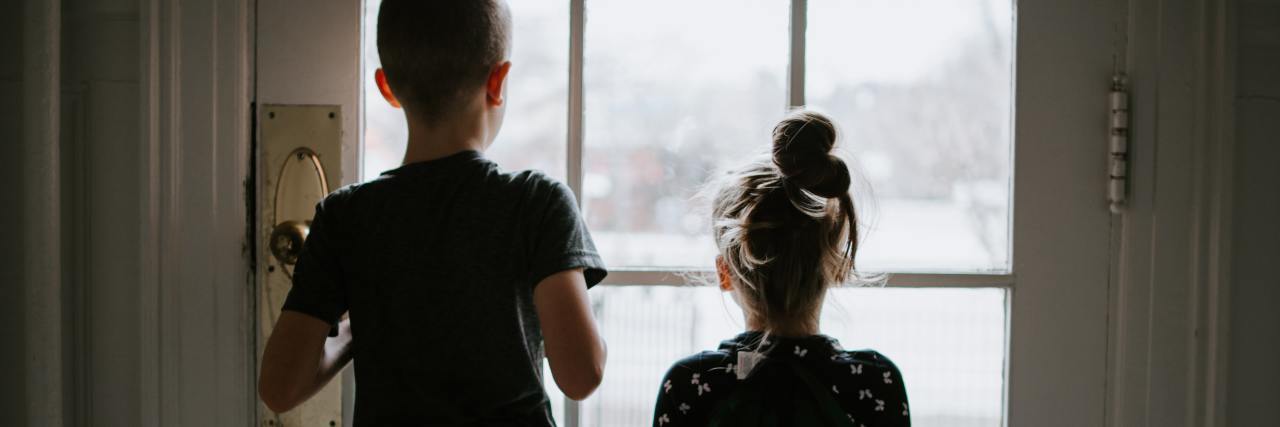How to Talk to Children About Work, Money and School During the Coronavirus Pandemic
In this time of the coronavirus (COVID-19) — the new viral strain in the coronavirus family that affects the lungs and respiratory system — with the economic insecurity and anxiety about health saturating the atmosphere, with schools and daycares closed, with parents either working from home or at home and not working at all, it’s inevitable that our children will understand something big is going on and most of them will also have big feelings about it.
It’s important, as parents, that we don’t dismiss their questions, pretend everything is fine or simply ignore them and their responses. Instead, our job as parents right now is to lean into the difficulty of this time and be honest and open with our children in age-appropriate ways that can help them process their emotions and make sense of their experiences.
Whether you need or want to talk to your child about why their school is closed, or why you’re working from home, or why you as a family are making changes to save money, there are some basic principles which apply in talking to children about hard things:
1. Try to make sure your own emotions are processed as best as you can.
This means turning toward other adults — and not emotionally relying on your children — to help you process the fear, anxiety, despair, shock, anger and any other emotions you may be feeling. Take it to your therapist, to your partner, to your parents or best friends; talk to them as much as you can before you start a conversation with your kids so you can show up more integrated and regulated with your young ones.
2. Frame difficult conversations in age-appropriate ways.
If you’re talking to a 15-year old, you can speak as you might to a fellow adult and share nuances and specifics. If you’re speaking to a 5-year old, you’re going to frame things differently. For instance, if you need to talk to a 5-year old about why Mommy or Daddy is now working from home, you can say something like:
“Sometimes in life, there are changes like chapters in your favorite book. Right now, we turned the page and are in a new chapter! New chapters can be interesting, can’t they? We never know what they will bring. And then that chapter will end and a new one will begin. So right now, Mommy’s working from home in the garage. And sometime this year, she may be back at her office. Those are just different chapters in the book of our life this year.”
3. As much as possible, make things a game and build a sense of teamwork around it.
These changes — a parent’s job loss, school closing or talk of a germ out in the world — may be relatively neutral subjects for young children who don’t have large frames of reference for these matters. They learn how to think about topics from us and how we talk and act about them. So as much as possible, with whatever changes you need to make in your home in the wake of COVID-19, try and frame those changes like a game and a challenge that you as a family are rallying around.
For instance, “how can we waste as little food as possible,” turns into: “who can make the most creative dish from our leftovers.”
Saving money becomes a game of “who can remember to turn off the lights and unplug the appliances the most often.”
“How can we support Daddy looking for a different job in this new chapter” may look like: “how many nice things can we say to each other — especially Daddy — each day.”
4. Limit or eliminate news and media consumption around your kids.
Save it for after bedtime, or put in your earphones if you must listen to the news. Again, children learn how to feel about things from us. So, try to remove fearful or anxiety-provoking messaging from their consumption and if it agitates you to listen to the news, save it for after they go to bed, when you know they won’t see your distress.
What I know from my work as a trauma therapist is this: the trauma itself is actually not the thing that results in problems. It’s a failure to metabolize and properly process the trauma that leads to maladaptive coping mechanisms and distress. I say this because it’s important for us as parents to help our children make sense of what they’re experiencing right now and not to pretend everything is OK when they know that it’s not. Instead, use their questions or what you’re seeing in them as an opportunity to answer their questions and help them understand, to tend to their feelings, to reframe the experience as something positive, and to take good care of ourselves as their parents by turning to other adults in our lives.
Annie Wright, LMFT.
For more on parenting during quarantine, check out the following stories from our parenting community:
- Creative Activities to Try With Your Kids While We’re Isolated at Home
- What to Do When Your Child on the Autism Spectrum’s Routine Is Disrupted by the Coronavirus
- One Reason the COVID-19 Pandemic Might Be Extra Challenging for Autistic Adults
- Why I’m Worried About Rationing If My Child With Down Syndrome Gets COVID-19
- Which Face Masks Prevent Against Coronavirus?
- 8 Soaps You Can Use to Help Prevent the Spread of Illness
Photo by Kelly Sikkema on Unsplash

